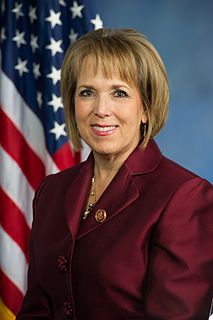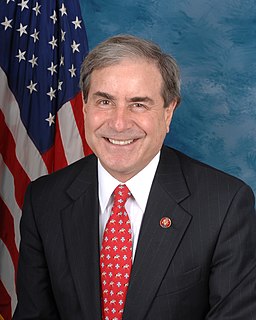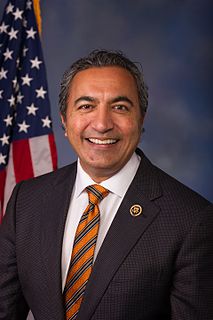A Quote by Barack Obama
This is not some distant problem of the future. This is a problem that is affecting Americans right now. Whether it means increased flooding, greater vulnerability to drought, more severe wildfires - all these things are having an impact on Americans as we speak.
Related Quotes
For the sake of our children and our future, we must do more to combat climate change. Now, it's true that no single event makes a trend. But the fact is the 12 hottest years on record have all come in the last 15. Heat waves, droughts, wildfires, floods-all are now more frequent and more intense. We can choose to believe that Superstorm Sandy, and the most severe drought in decades, and the worst wildfires some states have ever seen were all just a freak coincidence. Or we can choose to believe in the overwhelming judgment of science-and act before it's too late.
If we want to impact hundreds - or millions - of people, we have to do things differently. If we look at the problem as an infrastructural problem, we cannot make an impact because it requires a lot of effort. But when we convert this problem into a knowledge problem, suddenly the problem is manageable.
The government must give proper weight to both keeping America safe from terrorists and protecting Americans' privacy. But when Americans lack the most basic information about our domestic surveillance programs, they have no way of knowing whether we're getting that balance right. This lack of transparency is a big problem.
We, the people, still believe that our obligations as Americans are not just to ourselves, but to all posterity. We will respond to the threat of climate change, knowing that the failure to do so would betray our children and future generations. Some may still deny the overwhelming judgment of science, but none can avoid the devastating impact of raging fires and crippling drought and more powerful storms.
Revenge tries to solve the problem of vulnerability. If I strike back, I transfer vulnerability from myself to the other. And yet by striking back I produce a world in which my vulnerability to injury is increased by the likelihood of another strike. So it seems as if I'm getting rid of my vulnerability and instead locating it with the other, but actually I'm heightening the vulnerability of everyone and I'm heightening the possibility of violence that happens between us.
Federal assistance helps millions of Americans escape poverty every year by providing the stability needed to take advantage of new opportunities. In fact, it is our safety net that allows full participation in the economy. More Americans purchasing goods means more Americans making them, which means more American jobs.
Our nation is built upon a history of immigration, dating back to our first pioneers, the Pilgrims. For more than three centuries, we have welcomed generations of immigrants to our melting pot of hyphenated America: British-Americans; Italian-Americans; Irish-Americans; Jewish-Americans; Mexican-Americans; Chinese-Americans; Indian-Americans.
I do think we have a food problem. In 2006, which is the year for which we have the latest data, 35.5 million Americans were food insecure. That means there are 35.5 million Americans who are so hard up at some point during the year that they didn't know where their next meal was coming from. That's a lot of Americans. They don't get reported very much because there's nothing spectacular about people skipping a meal because they're poor. The media tends to ignore that, just as it ignores the sort of chronic food shortages elsewhere in the world.
Americans are coming to their senses, and the libertarian theory of society and government is pointing the way. The times change, but the enduring principles that help us to interpret and understand the world do not. It remains true now, as then, as in the future, saecula saeculorum, that government provides neither an effective nor a moral means for solving any human problem.
































